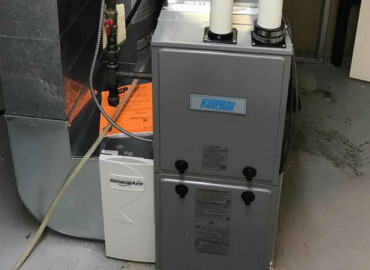Why My Water Smells Like Sulphur
As someone who has experienced the unpleasant odor of sulfur in their water, it can be a frustrating and concerning issue. Not only is the smell off-putting, but it can also be an indication of potential health risks. In this article, I will dive into the science behind why your water smells like sulfur, what other odors could be present, any potential health risks, how to test for sulfur, and ways to fix the problem.
What Causes Water to Smell Like Sulphur?
Sulfur is a naturally occurring element found in rocks, soil, and water. In water, sulfur can be present in two forms: sulfate and hydrogen sulfide. Sulfate is odorless and tasteless, making it undetectable in water. On the other hand, hydrogen sulfide has a distinct smell that resembles rotten eggs or burnt matches.
The presence of hydrogen sulfide in water is due to the breakdown of organic matter, such as decaying plants, and the presence of sulfur-reducing bacteria. These bacteria thrive in oxygen-depleted environments, such as deep wells or stagnant water, where they use sulfur as an energy source. As they consume sulfur, they release hydrogen sulfide gas, which then dissolves into the water.
Reasons Why Water May Smell Like Fish or Rotten Eggs
While the smell of sulfur is a common cause of unpleasant odors in water, it’s not the only one. The smell of fish in the water can be an indicator of bacterial growth, such as coliform bacteria or E. coli, which can pose a health risk. Additionally, the presence of algae in the water can create a musty or earthy odor, while chlorine used in water treatment can create a bleach-like smell.
It’s essential to assess the type of odor in your water to determine its source and potential health risks. If you’re unsure, it’s best to have your water tested by a professional.
Health Risks Associated with Bathing in Water That Smells Like Sulphur
While the smell of sulfur in water is unpleasant, it’s not necessarily harmful to your health. However, if you’re exposed to high levels of hydrogen sulfide gas, it can cause headaches, dizziness, or nausea. Additionally, bathing in water with high levels of sulfur can cause skin irritation, dryness, or discoloration.
If you’re experiencing any of these symptoms, it’s essential to investigate the cause and take action to reduce exposure to hydrogen sulfide.
How to Test if Your Water Contains Sulphur?
If you suspect that your water contains sulfur, you can perform a simple test to confirm. Fill a glass with cold water from your tap and let it sit for a few minutes. If the water smells like sulphur or rotten eggs, it’s likely that hydrogen sulfide is present.
Additionally, you can purchase a water testing kit from a hardware store or online to test for specific types of bacteria, chemicals, or minerals in your water. These kits are easy to use and can provide you with more detailed information about your water quality.
How to Fix the Problem of Water Smelling Like Sulphur?
There are several ways to fix the problem of water smelling like sulfur, depending on its source. If the odor is due to sulfur-reducing bacteria in your well, shock chlorination can be an effective solution. This involves adding a high concentration of chlorine to your well to kill the bacteria and neutralize the odor.
If the odor is due to hydrogen sulfide gas dissolving in your water, aeration or filtration systems can be used to remove the gas. Aeration involves exposing the water to air, which causes the gas to evaporate. Filtration systems, such as activated carbon or reverse osmosis, can also be used to remove the gas from your water.
Other Ways to Improve the Quality of Your Tap Water
While fixing the problem of sulfur in your water is essential, there are other ways to improve the overall quality of your tap water. Installing a water softener can reduce the amount of minerals, such as calcium and magnesium, in your water, which can cause scaling and buildup in your pipes and appliances.
Additionally, installing a water filtration system can remove other contaminants, such as chlorine, lead, or pesticides, from your water. This can improve the taste, odor, and overall safety of your drinking water.
Conclusion and Final Thoughts
In conclusion, the smell of sulfur in water can be a frustrating and concerning issue for homeowners. Understanding the science behind the odor, potential health risks, and how to test and fix the problem can help ensure the safety and quality of your water.
While there are several solutions to the problem, it’s essential to identify the source of the odor to determine the most effective solution. Additionally, improving the overall quality of your tap water through water softeners or filtration systems can provide long-term benefits for you and your family.
If you’re experiencing issues with the smell of sulfur in your water, I encourage you to reach out to a professional for guidance and support.




